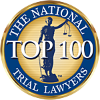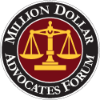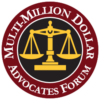Pharmaceutical Whistleblowers Can Help Reduce Fraud
Whistleblowers like you are essential in trying to hold fraudsters accountable for swindling the public.
Whistleblowers like you are essential in trying to hold fraudsters accountable for swindling the public.
Whistleblower recoveries involving healthcare fraud allegations brought in over $1.6 billion to the government in 2021, and the pharmaceutical industry was one of the largest government defrauders. The False Claims Act (FCA) is an important tool that is intended to deter pharmaceutical companies who misuse public funds and hold them accountable for their part of this process.
If you think you have observed fraud against the government, you can try to help stop it. Whistleblowers could be:
Contact an experienced pharmaceutical fraud whistleblower lawyer and discuss filing a lawsuit on behalf of the government, called a qui tam lawsuit. And if the government uses your information to recover taxpayer money from the pharmaceutical company, you may be entitled to a reward.
There are many different ways that pharmaceutical companies can defraud the government, including Medicare/Medicaid-related fraud and false claims in clinical research drug trials, but a large portion of the pharmaceutical fraud uncovered by whistleblowers is focused on:
Other forms of pharmaceutical fraud can include charging prices to the government that are higher than the law allows and charging for drugs not used.
Individuals who have information and evidence of these types of pharmaceutical fraud against the government may bring suit on behalf of the government by filing a whistleblower/qui tam lawsuit under the FCA.

The False Claims Act (FCA) has been a powerful weapon in the government’s arsenal for combating fraud in the pharmaceutical industry and implementing big pharma fines for misconduct. Our lead whistleblower attorney Bill Nettles served as the U.S. Attorney for the District of South Carolina, and his office resolved several large pharmaceutical fraud cases:1,4
A whistleblower alleged that Amgen, a California-based company that develops, manufactures, and sells pharmaceutical products, illegally paid kickbacks to long-term pharmacy providers Omnicare, Inc., PharMerica Corporation, and Kindred Healthcare, Inc. for implementing programs designed to switch Medicare and Medicaid beneficiaries from a competitor drug to a drug that it manufactured, Aransep. Amgen resolved the False Claims Act violation allegations by paying the government a $24.9 million settlement.1,4
“By this agreement, we are making important strides in holding drug manufacturers accountable for fraudulent and abusive practices not only in South Carolina but nationwide,” said Bill Nettles, U.S. Attorney for the District of South Carolina at the time of the settlement.
To resolve its part in the alleged scheme of illegally promoting Aransep, long-term care pharmacy PharMerica paid a $2.5 million settlement.1,4
“Public health insurance programs shouldn’t foot the bill for drug company schemes that manipulate doctors and patients to maximize profits,” said (then) South Carolina U.S. Attorney Bill Nettles. “This case is an excellent example of how the government can work together with private whistleblowers to recover money for taxpayers.”
Another long-term care pharmacy, Omnicare, paid the government $4.19 million to resolve FCA allegations of soliciting and receiving kickbacks associated with the Amgen drug Aransep. The whistleblower received $397,925 for bringing the case forward.1,4
“The District of South Carolina has devoted significant resources over the last three years to pursuing claims under the False Claims Act, and this settlement is the latest example of this office’s successful efforts,” said U.S. Attorney for the District of South Carolina at the time, Bill Nettles.
Carolina Whistleblower Attorneys’ Gary Jackson handled a whistleblower lawsuit against RxAmerica, a wholly-owned subsidiary of CVS Caremark Corporation, involving Medicare’s Prescription Drug Program, known as Part D.4 The company agreed to pay the government $5.25 million to resolve allegations that it misrepresented costs of prescription drugs on the Centers for Medicare & Medicaid Service website and submitted false claims to the government. The whistleblowers received almost $1 million for their participation in the qui tam lawsuit.1
Kickback schemes designed to influence drug prescriptions undermine the integrity of medical decisions and increase the costs of health care for everyone. Promoting drugs in a way that encourages doctors to prescribe medication in ways that are not FDA-approved puts the public’s health at risk.
Fortunately, the FCA provides an avenue for brave whistleblowers with knowledge about pharmaceutical fraud schemes to come forward with information about big pharma scams. It also has protections built into it to help shield whistleblowers from retaliation and harassment.
We will put your interests first and can use our significant financial, technological, and staffing resources to investigate and file your claim and take it through trial as needed and/or potential settlement. Check out our You-First Policy for the various ways we work with and can protect our whistleblower clients in big pharma lawsuits.
If you believe you have knowledge and evidence of pharmaceutical fraud against the government, contact Carolina Whistleblower Attorneys online for a free and confidential case evaluation or call us at 1-888-292-8852.
Consistent with our You-First policy, we will only take your FCA pharma case if we think there’s a good chance of success, and you won’t owe us anything unless you receive a reward.2 Let us help you blow the whistle on pharmaceutical fraud against the government.
“Bill has the ability to ‘think outside the box’…which makes him extremely effective as an advocate for his clients.” 1 — Attorney who previously worked with Bill






If you’re wondering if it’s a good idea to speak with a whistleblower lawyer about what you know, let us set the record straight.
"*" indicates required fields